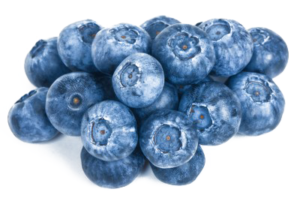 The prestigious medical journal The Lancet recently released a report by its Commission On Pollution and Health on the effects of various types of pollution (water, air, occupational, chemical, etc) on people and world economies - that is, the effect of pollution on "global health". The main finding: Diseases caused by pollution were responsible in 2015 for an estimated 9 million premature deaths -- 16 percent of all deaths worldwide. Pollution is now known to cause a wide variety of diseases and health problems, including asthma, cancer, neurodevelopmental disorders, and birth defects in children; and heart disease, stroke, chronic obstructive pulmonary disease, and cancer in adults. The list of health effects keeps increasing. [See all posts on pollution.]
The prestigious medical journal The Lancet recently released a report by its Commission On Pollution and Health on the effects of various types of pollution (water, air, occupational, chemical, etc) on people and world economies - that is, the effect of pollution on "global health". The main finding: Diseases caused by pollution were responsible in 2015 for an estimated 9 million premature deaths -- 16 percent of all deaths worldwide. Pollution is now known to cause a wide variety of diseases and health problems, including asthma, cancer, neurodevelopmental disorders, and birth defects in children; and heart disease, stroke, chronic obstructive pulmonary disease, and cancer in adults. The list of health effects keeps increasing. [See all posts on pollution.]
The report states that certain types of pollution are increasing throughout the world - air, chemical, and soil pollution.They also discuss new and emerging pollutants (most of them chemical pollutants) whose effects on human health
are not yet fully understood, yet they are widely found in the environment and detected in most humans. The authors of the report even say: "At least some of these chemical pollutants appear to have potential to cause global epidemics of disease, disability, and death."
Chemical pollutants include: developmental neurotoxicants (e.g. pesticides, lead, mercury), endocrine disruptors (which have reproductive effects and can alter fertility), new classes of pesticides such as the neonicotinoids, chemical herbicides such as glyphosate (found in Roundup and the most commonly used pesticide in the world), nano-particles, and pharmaceutical wastes.
While most deaths from all sorts of pollution are currently occurring in poorer developing countries (e.g. China and India), we in the United States also have health effects and deaths from pollution - just not on the scale of those countries. Also, remember that winds carry pollutants globally - so that air pollution in China will cross the Pacific Ocean on the winds to the US.
Everyone agrees that taking action works - think of the success in banning lead, asbestos, and DDT in the United States. And amounts of six common air pollutants have been reduced by about 70% since passage of the Clean Air Act in 1970. We can thank laws, and organizations established due to environmental problems and crises in the past (e.g. the Environmental Protection Agency (EPA), Superfund legislation, Clean Water Act, Clean Air Act) for that.
From Science Daily: Pollution responsible for 16 percent of early deaths globally
Diseases caused by pollution were responsible in 2015 for an estimated 9 million premature deaths -- 16 percent of all deaths worldwide, according to a report. Simon Fraser University health sciences professor Bruce Lanphear is a Commissioner and author of The Lancet Commission on Pollution and Health that has released a report detailing the adverse effects of pollution on global health. ...."Pollution, which is at the root of many diseases and disorders that plague humankind, is entirely preventable."
Commission findings include: - Pollution causes 16% of all deaths globally. Diseases caused by pollution were responsible in 2015 for an estimated 9 million premature deaths -- 16% of all deaths worldwide -- three times more deaths than AIDS, tuberculosis, and malaria combined; and fifteen times more than all wars and other forms of violence. It kills more people than smoking, hunger and natural disasters. In some countries, it accounts for one in four deaths. - Pollution disproportionately kills the poor and the vulnerable. Nearly 92% of pollution-related deaths occur in low- and middle-income countries. Within countries, pollution's toll is greatest in poor and marginalized communities. Children face the highest risks because small exposures to chemicals in utero and in early childhood can result in lifelong disease and, disability, premature death, as well as reduced learning and earning potential. - Pollution is closely tied to climate change and biodiversity. Fossil fuel combustion in higher-income countries and the burning of biomass in lower-income countries accounts for 85% of airborne particulate pollution. Major emitters of carbon dioxide are coal-fired power plants, chemical producers, mining operations, and vehicles.
A few excerpts (lead & pesticides) from the report in The Lancet: The Lancet Commission on pollution and health
Another example of the economic benefits of addressing pollution is seen in the consequences of removing lead from gasoline in the USA. This intervention began in 1975 and, within a decade, had reduced the mean blood concentration of lead in the population by more than 90%, almost eliminated childhood lead poisoning, and increased the cognitive capacity of all American children born since 1980 by 2–5 IQ points. This gain in intelligence has increased national economic productivity and will yield an economic benefit of US$200 billion (range $110 billion–300 billion) over the lifetimes of each annual cohort of children born since 1980, an aggregate benefit to-date of over $6 trillion.
Developmental neurotoxicants: Evidence is strong that widely used chemicals and pesticides have been responsible for injury to the brains of millions of children and have resulted in a global pandemic of neurodevelopmental toxicity. The manifestations of exposure to these chemicals during early development include loss of cognition, shortening of attention span, impairment of executive function, behavioural disorders, increased prevalence of attention deficit and hyperactivity disorder, learning disabilities, dyslexia, and autism.
Pesticides: More than 20,000 commercial pesticide products, including insecticides, herbicides, fungicides, and rodenticides are available on world markets. More than 1.1 billion pounds of these products are used in the USA each year and an estimated 5.2 billion pounds globally. ....The organophosphate insecticides are a large and widely used class of pesticides. Members of this class of chemicals are powerful developmental neurotoxicants, and prenatal exposures are associated with persistent deleterious effects on children’s cognitive and behavioural function and with long-term, potentially irreversible, changes to brain structure that are evident on MRI.
Chemical herbicides account for nearly 40% of global pesticide use and applications are increasing. A major use is in production of genetically modified food crops engineered to be resistant to glyphosate (Roundup), the world’s most widely used herbicide. Glyphosate-resistant, so-called “Roundup Ready” crops, now account for more than 90% of all corn and soybeans planted in the USA, and their use is growing globally. Glyphosate is widely detected in air and water in agricultural areas, and glyphosate residues are detected in commonly consumed foods.
 New research published in The Lancet estimates that lead exposure results in about 400,000 deaths every year in the USA - which includes about 250,000 deaths from cardiovascular disease. The study looked at "historical exposure" to lead, which means they looked at a person's lead exposure years ago (which could have been from many sources, such as breathing lead contaminated dust, drinking water from leaded pipes, from lead paint, leaded gas, or eating from cans that have been soldered with lead). What was noteworthy in this study following over 14,000 adults was that there were increased death rates even from low lead blood levels (concentrations of lead in blood lower than 5 μg/dL).
New research published in The Lancet estimates that lead exposure results in about 400,000 deaths every year in the USA - which includes about 250,000 deaths from cardiovascular disease. The study looked at "historical exposure" to lead, which means they looked at a person's lead exposure years ago (which could have been from many sources, such as breathing lead contaminated dust, drinking water from leaded pipes, from lead paint, leaded gas, or eating from cans that have been soldered with lead). What was noteworthy in this study following over 14,000 adults was that there were increased death rates even from low lead blood levels (concentrations of lead in blood lower than 5 μg/dL).
 As many (most?) people know nowadays - drinking alcohol during pregnancy can have negative effects on the developing baby. Drinking a lot of alcohol can result in
As many (most?) people know nowadays - drinking alcohol during pregnancy can have negative effects on the developing baby. Drinking a lot of alcohol can result in  Another
Another  The following
The following  A while ago I posted the results of studies showing differences in infant microbiomes (community of microbes) depending on whether the babies were delivered
A while ago I posted the results of studies showing differences in infant microbiomes (community of microbes) depending on whether the babies were delivered  The prestigious medical journal The Lancet recently released a report by its Commission On Pollution and Health on the effects of various types of pollution (water, air, occupational, chemical, etc) on people and world economies - that is, the effect of pollution on "global health". The main finding: Diseases caused by pollution were responsible in 2015 for an estimated 9 million premature deaths -- 16 percent of all deaths worldwide. Pollution is now known to cause a wide variety of diseases and health problems, including asthma, cancer, neurodevelopmental disorders, and birth defects in
The prestigious medical journal The Lancet recently released a report by its Commission On Pollution and Health on the effects of various types of pollution (water, air, occupational, chemical, etc) on people and world economies - that is, the effect of pollution on "global health". The main finding: Diseases caused by pollution were responsible in 2015 for an estimated 9 million premature deaths -- 16 percent of all deaths worldwide. Pollution is now known to cause a wide variety of diseases and health problems, including asthma, cancer, neurodevelopmental disorders, and birth defects in  For years studies have suggested that eating blueberries and other berries is good for our health (
For years studies have suggested that eating blueberries and other berries is good for our health (